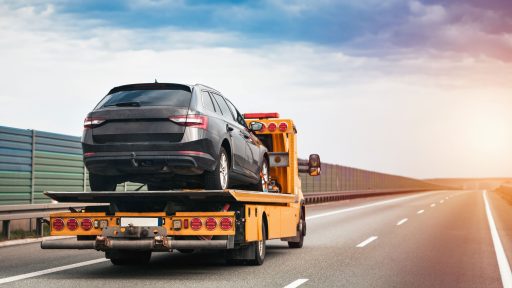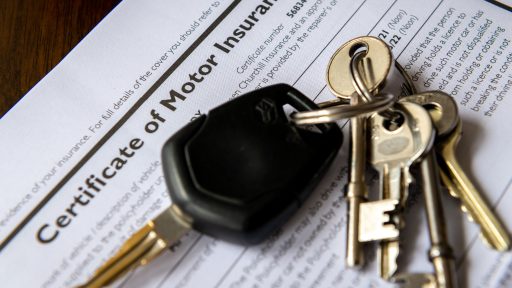Tips to reduce motorhome and campervan breakdowns this hire season

As the 2022 hire season approaches, your motorhomes and campers will return to regular use as hirers enjoy the open road but, have you considered how a potential breakdown could change your plans? Often breakdown doesn’t cross our minds, but it can spell the end of a hirers’ holiday and potential costly ramifications for you.
Not all breakdowns can be avoided, however, with some preparation you can limit the effects that a breakdown will have.
Common causes of breakdowns
There are a variety of reasons a motorhome or campervan can breakdown. Often a breakdown will be due to poor maintenance, improper storage, and a lack of pre-trip checks. Damage due to poor maintenance could affect:
- Battery issues
- Tyres – perished or damaged
- Warning lights
- Engine wear and tear
- Bodywork problems, such as corrosion
- Electrical faults
- Water damage
There are some simple steps you can do to limit the likelihood of a breakdown.
Tyres
- Visually check tyres for cuts, bulges, or evidence of perishing, these could lead to punctures.
- Check the tyre pressures, you can find the recommended tyre pressures in your vehicle handbook.
- Ensure that tread depth is at least 1.6mm. This is the minimum requirement for the UK, but if you are planning on travelling abroad check the requirements for the relevant country.
- Check that your motorhome has a pump and tyre sealant and that it is within the use-by date.
Windscreen
- Check your windscreen for any obvious chips, cracks, or marks.
- Check the level of washer fluid and top up as necessary.
Spare wheel and toolkit
- Ensure you have a spare wheel, repair kit and any necessary tools.
- Your toolkit should include tools to help you fix basic issues, such as loose fitting and minor electrical problems.
Engine
- If you’re vehicle has been stationery for some time, be sure to start the engine and let it run for a while. You should be listening for signs of any knocking noises, hi-pitched screeches or noises which are outside of the norm.
- Before starting the engine, make sure to check the dipstick for the current oil level. Top up as required.
- If the oil consumption is higher than normal there may be an underlying problem. If you’re unsure, take the vehicle to a garage for a professional check-up.
Liquids
- The expansion tank should not need to be refilled often. If you find you’re filling it up more often than any other service, there may be an underlying issue. In this case you’re best to get it checked by an expert.
- It’s also worth checking the coolant levels as the engine is running, as some leakage can occur when it’s hot rather than cold. To do this safely, remove the ignition key and complete your checks without attempting to remove any engine components.
- Make sure to check the antifreeze concentration as this will help you to spot signs of leaks.
Electrics
- Check the heaters, lights, and wipers, any issues may be a sign of a blown fuse.
- Be on the lookout for loose wires and carry spare fuses in your toolkit.
Battery
- Check your engine battery and the leisure battery. These may be low if your vehicle has been off the road for a while.
- If your motorhome is not in regular use, a decent battery trickle charger is a good investment to guarantee safe and regular charging and prevent plate damage and deterioration arising from under/overcharging. It could also be worth considering installing solar panels to keep your leisure battery charged.
What to do if you do breakdown
Despite your best efforts, sometimes breakdowns are unavoidable. If you do breakdown, follow the below steps to keep you safe and ensure assistance can get to you.
Before any journey you should make sure you have an emergency breakdown bag, this should include:
- Ice scraper and de-icer
- Torch and spare batteries
- Warm clothes and blankets
- Hi-vis jackets
- Boots with good grip
- First aid kit
- Jump start cables
- Empty fuel can
- Non-perishable food and drink
- Shovel
- Two reflective warning signs
- Map
- Sunglasses
- In car or portable phone charger
If you do breakdown, follow these steps:
- Stay calm and think of other road users
- Attempt to pull over where safe so that you’re not obstructing other vehicles
- Turn on your hazard lights
- Leave the car through the left-hand door and ensure you’re wearing light coloured or hi-vis clothes.
- Place your warning triangle 45 metres (147 feet) behind you’re vehicle (about 60 paces). However, do not do this if you have broken down on a motorway.
- If visibility is poor, or at night, keep your sidelights on and make sure where you’re stood isn’t stopping other road users from seeing them.
- Call your breakdown provider for assistance and recovery.
Call Assist breakdown cover from Alan Boswell Group
Conventional breakdown policies have restrictions due to the vehicle dimensions and do not provide cover for hire vehicles, meaning your hirers could be left stranded. At Alan Boswell Group we offer Call Assist breakdown cover which provides UK only and UK & European cover, without restrictions to vehicle dimensions and regardless of who is driving the vehicle.
To discuss adding on Call Assist breakdown cover to your policy, contact the Self-Drive Hire team on 01603 649744 or by email.




